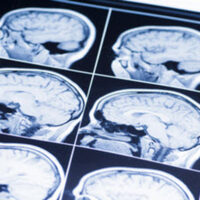Medical Tests You May Need After Suffering a Head Injury in a Car Accident

Among the most common car accident injuries are head injuries. These injuries can range from mild to severe. Even if you think yours is a mild head injury, it is crucial that you seek prompt medical attention. Seeking prompt medical attention can minimize the risk of long-term complications. Also, seeing a doctor immediately creates medical records, which can be helpful if you decide to pursue legal action for your injury and damages.
When you see a doctor after suffering a head injury in a car accident, they may conduct several medical tests to accurately diagnose your injury and ensure proper treatment. The following are some of the medical tests you may need after suffering a car accident head injury;
Physical and Neurological Exam
When you see a doctor after suffering a head injury in a car accident, the first thing they do is conduct a physical examination to check for things like cuts, bruises, or swelling. They also assess your neurological health by checking your pupil response, balance, motor skills, and level of consciousness. For example, a doctor may ask you questions about your name, time, current date, location, and recent events. These questions are crucial for assessing your memory and cognitive function. The doctor may also monitor your heart rate, blood pressure, and other vital signs to ensure they are stable. This step helps determine if immediate medical interventions are necessary.
Computerized Tomography (CT) Scan
This imaging test uses a series of X-rays to create a detailed view of the brain. A CT scan is often one of the first tests doctors recommend for car accident head injuries, especially if they suspect a traumatic brain injury (TBI). A CT scan can help detect bleeding in the brain, blood clots, and bruised brain tissue, among other acute issues. If a CT scan reveals any issue, your doctor may be able to act fast to prevent more damage.
Magnetic Resonance Imaging (MRI)
Using strong magnetic fields and radio waves, MRIs are able to create detailed images. This makes MRIs helpful in identifying issues that may not be visible on a CT scan. An example of an injury that an MRI may help detect is a diffuse axonal injury (DAI), which occurs when the brain’s white matter is damaged. A doctor may recommend an MRI scan after your condition stabilizes or if your symptoms don’t improve.
Electroencephalogram (EEG)
This test is recommended when there are unexplained symptoms like fainting spells, seizures, or confusion that other diagnostic tests cannot explain. An EEG measures electrical activity in the brain and helps detect abnormal brain patterns.
Neuropsychological Tests
If your cognitive abilities have been affected, these tests can help provide detailed insights into the severity of the impairment. Neuropsychological tests evaluate memory, attention, language skills, and other aspects of brain function. For instance, a memory test can help show if you’re struggling with temporary or permanent memory loss.
Contact Us for Legal Help
If you’ve suffered a head injury in a car accident, our skilled Miami personal injury attorneys at The Pendas Law Firm can help you seek justice and compensation. Contact us today to schedule a consultation. The Pendas Law Firm also represents clients in the Jacksonville, Tampa, Ocala, Orlando, Fort Myers, Fort Lauderdale, Bradenton, Daytona Beach, West Palm Beach, Naples, and Melbourne areas.

